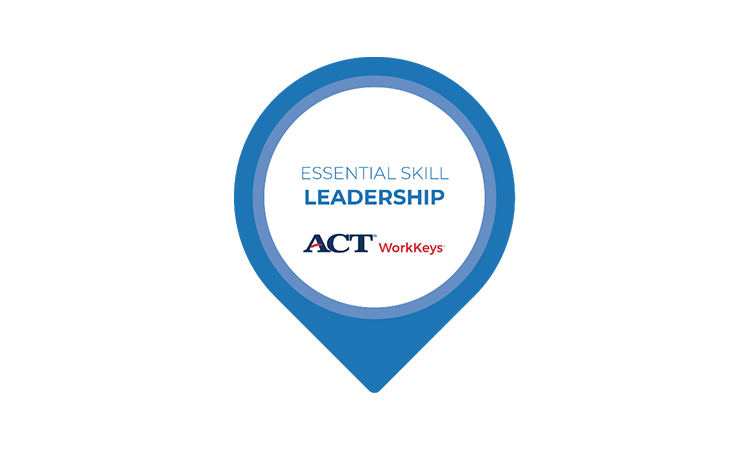ACT WorkKeys Essential Skills Assessment
ACT WorkKeys Assessments for K-12 Educators | Community Colleges | Adult Education | Employers | Job-Seekers
Assess Employability Skills to Predict Workplace Success
ACT WorkKeys Essential Skills is a research-based, multi-method, online assessment designed to measure individuals' employability skills—Integrity, Work Ethic, Collaboration, Resilience, Leadership, and Creativity—that predict workplace success.
WorkKeys Essential Skills offers a more complete picture of workplace skills for hiring, programs of study, and individuals’ personal skills needed for the next step on their career pathway.
Today’s workforce needs a wide range of skills to succeed, including the essential skills applicable to any career type. Aside from job-specific skills, don’t overlook the skills that drive higher productivity, performance, and competitiveness.
What WorkKeys Essential Skills Measures
The WorkKeys system, trusted by business and education leaders for decades to measure career readiness skills, now offers assessments that measure the behaviors and values that fuel productivity, team effectiveness, durability, and overall success.
Integrity
Honesty, sincerity, fairness toward others, and modesty.
Work Ethic
Persistence, goal striving, reliability, dependability, and attention to detail.
Collaboration
The ability to work on teams, empathy, helpfulness, trust, and trustworthiness.
Resilience
Stress management, emotional regulation, a positive response to setbacks, and poise.
Leadership
Assertiveness, influence, optimism, and enthusiasm.
Creativity
Ingenuity, flexibility, open mindedness, and embracing diversity.
The WorkKeys Essential Skills Advantage
Assess Skills Linked to Workplace Success
Unlike other workforce skills assessments, WorkKeys Essential Skills measures an individual’s strengths in each of the six measured skills rather than using a pass/fail approach.
Multi-Method,
Research Based
- Based on decades of research on Big Five and HEXACO frameworks.
- Combines Likert and situational judgment items resulting in an engaging, multi-method assessment that’s less susceptible to response bias.
Anytime/Anywhere Online Testing
- Online administration allows examinees a streamlined experience, using ACT’s learning management system or your existing system.
- Proctoring is not required.
Short Test Time
- WorkKeys Essential Skills assessment takes approximately 15 minutes to complete.
- Easy to read—assessment items are written at a fifth-grade reading level.
Digital Badging
- Individuals who earn at or above the 84th percentile in each measured essential skill will receive a micro-credential that can easily be shared with employers via Credly digital badge.
Robust and
Actionable Data
- For educators, examinee score reports and aggregate-level data are available and can be downloaded from their learning management system as soon as 15 minutes after testing is complete.
- Organizations can grant and manage user access to ensure authorized individuals can access data.
- Data resources and free coaching tools are available to ensure that institutions and organizations can use WorkKeys Essential Skills data to understand and support examinee skill development and success.
Dedicated Support
- ACT provides comprehensive training materials and resources to ensure successful administration.
- Dedicated WorkKeys Customer Support ensures that administrators have easy access to solutions and troubleshooting.
FAQs About Essential Skills
Part I. The What and Why
Part II. Details About the Assessment
Part III. The Deep Dive
Ready to Enroll in WorkKeys?
Put ACT WorkKeys to work for you and start your enrollment today! Have questions? Talk to an ACT representative to get started.
